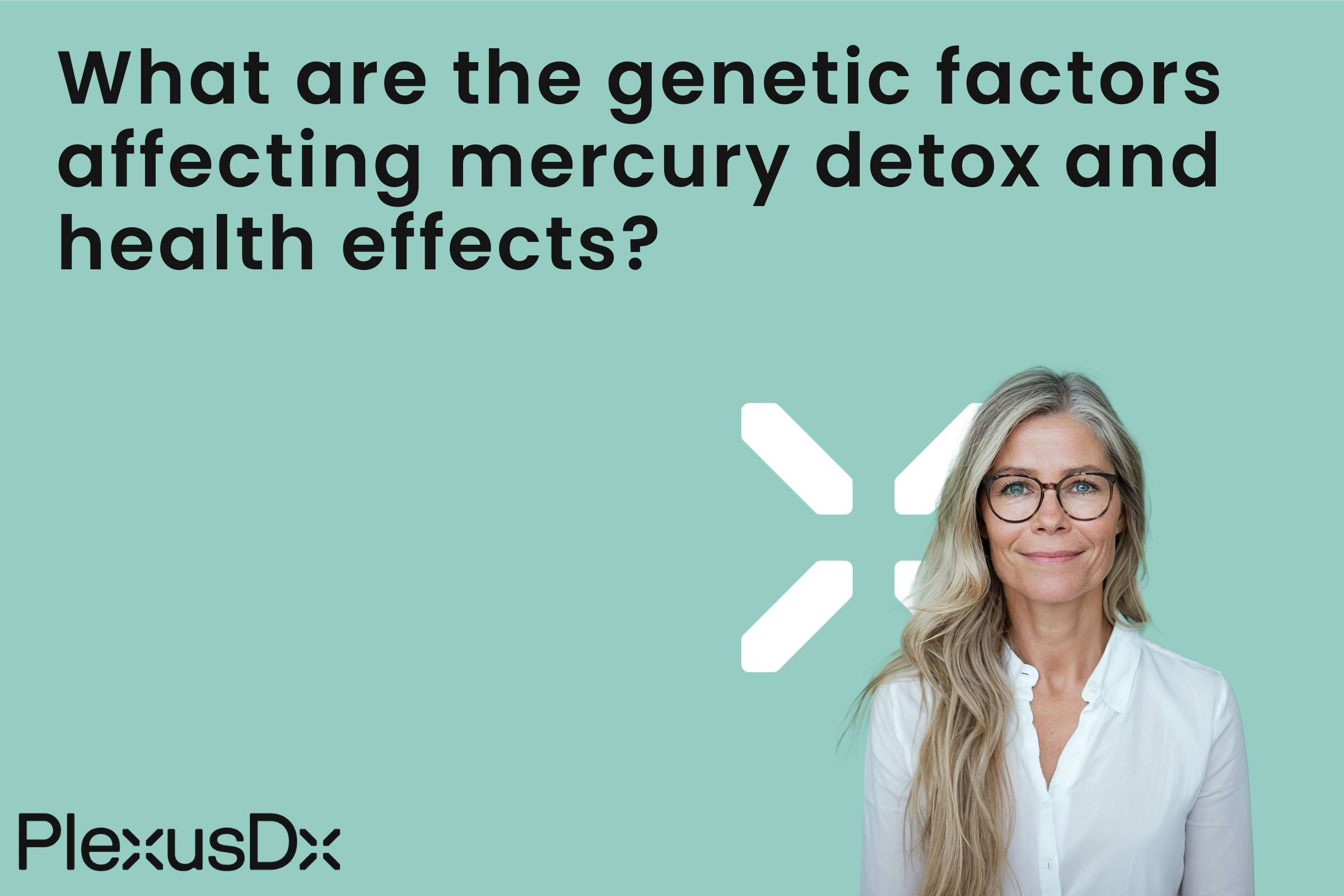Mercury and Your Health
The toxic heavy metal mercury appears throughout our environment starting from soil all the way to seafood. This blog post explores how genetic factors affect our ability to detoxify from mercury and reveals the multiple health effects resulting from mercury exposure.
Mercury Exposure
Everyday sources carry mercury which creates underestimated health hazards. Large fish such as tuna, shark, and swordfish serve as major sources of mercury exposure through seafood consumption. Dental amalgams combined with occupational exposures like gold mining serve as additional sources of mercury intake. A number of vaccines carry minimal amounts of mercury through thimerosal while health officials claim its safety and provide thimerosal-free options. The prolonged exposure to mercury can lead to severe health problems such as depression and cognitive decline along with heart disease and kidney damage.
The hazardous impact of mercury on human health emphasizes the necessity of learning how our bodies eliminate this toxic element. The body detoxifies mercury mainly through glutathione which functions as the "master antioxidant". Glutathione attaches to mercury to convert it into safer chemicals which the body can then remove. Genetic differences in genes that control glutathione synthesis and function can modify how efficiently a person detoxifies mercury. The GCLC gene produces an enzyme essential for the creation of glutathione. The gene variant rs761142-A shows a connection to increased mercury concentrations in mother's hair. Research indicates that pregnant women with elevated blood mercury levels experience developmental complications in their children. The GSTP1 gene produces an enzyme that helps bind toxins but contains the rs1138272-T variant which results in increased mercury concentrations in both blood and hair samples. People with the "null" variant of the GSTM1 gene tend to show increased mercury levels in their blood and hair samples. A specific gene variant determines glutathione activity which regulates how well the body detoxifies itself. The rs366631 "AA" genotype in your genetic profile suggests you carry this variant and need to monitor mercury exposure closely.
The interplay between genetic variants and mercury levels remains complicated and remains not completely understood. The understanding of mercury detoxification is clouded by inconsistent research findings which are further complicated by dietary habits and environmental influences. Understanding your genetic predispositions can reveal important information about how sensitive you are to mercury. People who understand their genetic ability to detoxify mercury can make better choices for their health. The Precision Health & Wellness tests from PlexusDx which you can find on PlexusDx.com as well as Amazon and Walmart provide valuable insights into your genetic profile and potential risk factors. Optimize your health outcomes by using genetic testing insights to manage your well-being.

Share:
What health conditions are associated with HLA gene variants?
What are the genetic risk factors for Addison's Disease and role of personalized health reports?